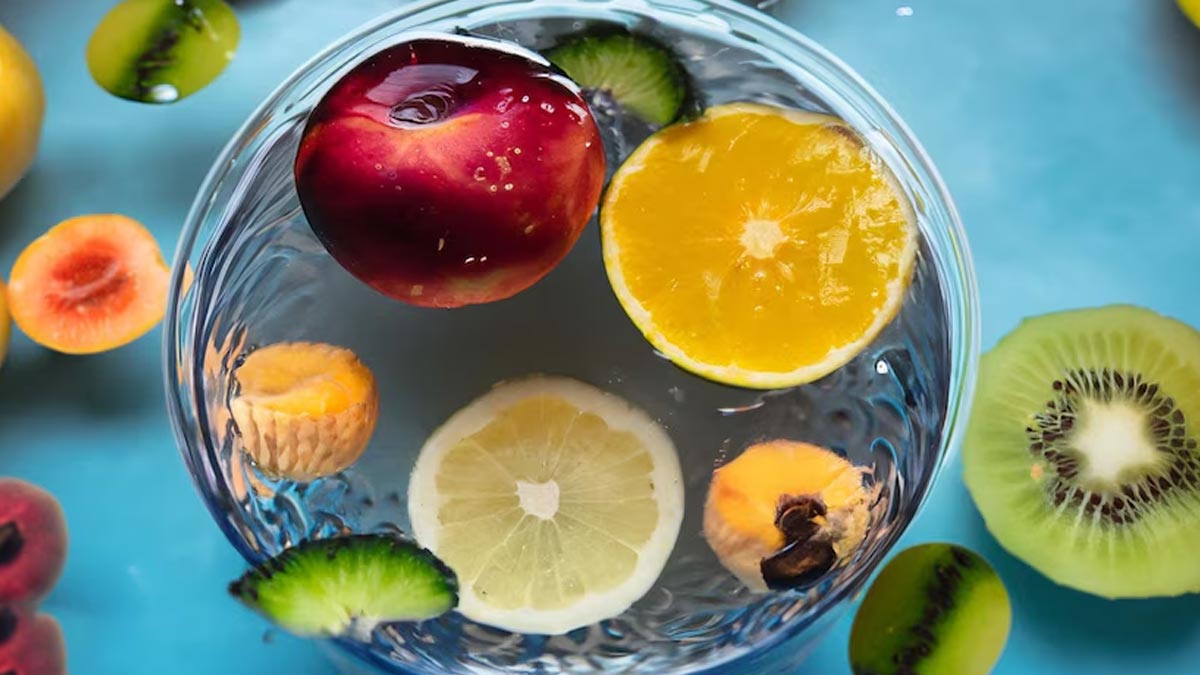
Can you imagine surviving on just fruit and water and nothing else? While both are considered healthy and safe to consume, they alone cannot fulfil your dietary needs. However, what if the duration of this form of diet is just three days? Does it make it more achievable, and can it benefit your health or help you lose weight?
In an interaction with the OnlyMyHealth team, Suvarna Hebbar, Coordinator of the Programme, Clinical Nutrition and Dietetics, Manipal College of Health Professions, MAHE, Manipal, describes this diet as a fruit-water diet, also popularly known as a fruit-flush diet. During the conversation, she not only discusses what the diet comprises but also shares whether or not it is effective. Let's delve deeper into the details.
Also Read: When Should You Avoid Eating Citrus Fruits? Steps To Take
What Is A Fruit-Water Diet?

The fruit water diet, also known as fruit-infused water or fruit-flavoured water, involves infusing water with various fruits to enhance its flavour and potentially provide some additional nutrients, says Hebbar.
She adds that the duration of the diet depends on individual goals and preferences. Different ways to follow this diet include:
Some people use fruit or vegetable water as a detox method for a few days to a week. This helps in cleansing, kick-starting metabolism for a shorter duration, and maintaining hydration.
Others use it intermittently along with their daily routine to replace sugary beverages and to maintain their hydration and skin health.
However, the dietitian notes that surviving with only fruits and water will not help in the long run as it contains fewer nutrients and energy.
Is It Safe And Effective?

According to Hebbar, a fruit-water diet is safe and can be a healthy addition to a normal diet. Some of the advantages include:
Pros
- Increases water intake: A delicious way to stay hydrated, especially for those who find plain water boring.
- Low in calories and sugar: Compared to sugary drinks like soda or juice
- Limited nutrients: Infusion doesn't transfer many vitamins and minerals from fruit to water.
However, Hebbar advises that a fruit-water diet alone should not replace a balanced diet that contains a balanced amount of carbohydrates, protein, and fats.
Medical News Today suggests that the body cannot absorb the nutrients that it needs from fruit alone and therefore, may lead to certain types of nutritional deficiencies, including iron, calcium, vitamin D, zinc, omega-3 fatty acids, and B vitamins.
Moreover, while water has zero calories and sugar, fruits naturally contain sugar, called fructose, and have sugar in them. Fruits with a higher glycemic index (GI) include:
- Bananas
- Grapes
- Tropical fruits
Therefore, whether or not you're on a fruit-flush diet, it is best to consume lower-GI foods that include apples, oranges, pears, and berries.
Also Read: Weight Loss Diet: Add These 10 High-Protein Fruits To Lose Weight
Know The Risks

Hebbar also lists some of the complications associated with the fruit-water diet, which include:
Nutrient deficiencies: Fruits lack protein, essential fats, and some key vitamins and minerals like vitamin B12, calcium, and iron. This can lead to fatigue, weakness, and even malnutrition.
Blood sugar spikes: Fruits are high in sugar (fructose). Consuming only fruits can cause blood sugar spikes and crashes, leading to mood swings, hunger pangs, and cravings when followed for a long duration and not taking any other meals along with it.
Dental issues: The constant presence of acid and sugar from fruits can erode tooth enamel and increase the risk of cavities.
Conclusion
Eating fruits and drinking water is a healthy dietary habit. However, depending on them alone may not be as beneficial and may even hold some risks. Some of the most common side effects include increased risk of nutritional deficiencies, diabetes risk, dental problems, and more. Ensure that you speak with a doctor or a healthcare professional before taking up this type of diet.
Also watch this video
Read Next
Garlic For Sexual Health: Here's How It Can Be A Natural Boost For Men's Sexual Health And Vitality
How we keep this article up to date:
We work with experts and keep a close eye on the latest in health and wellness. Whenever there is a new research or helpful information, we update our articles with accurate and useful advice.
Current Version